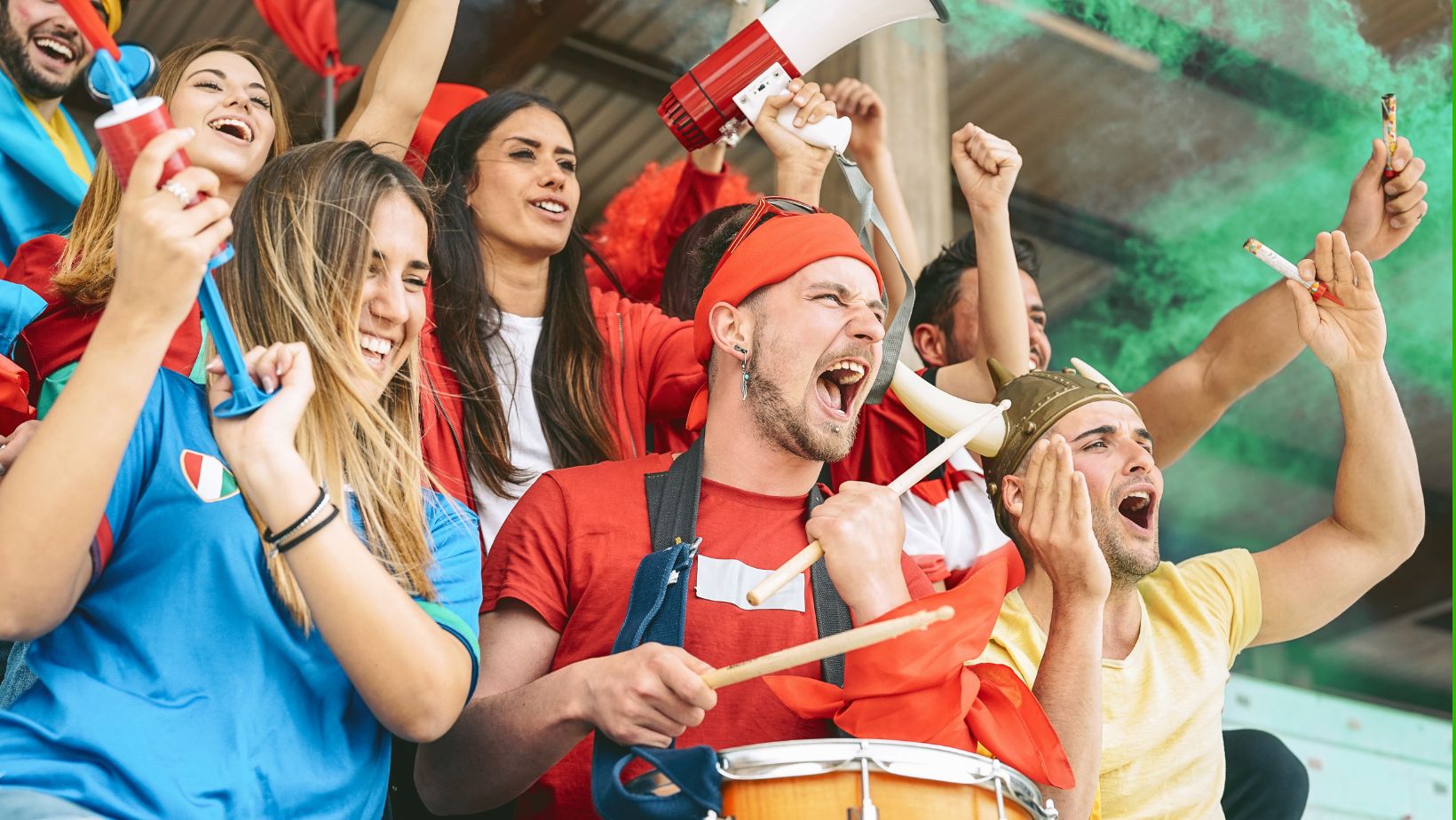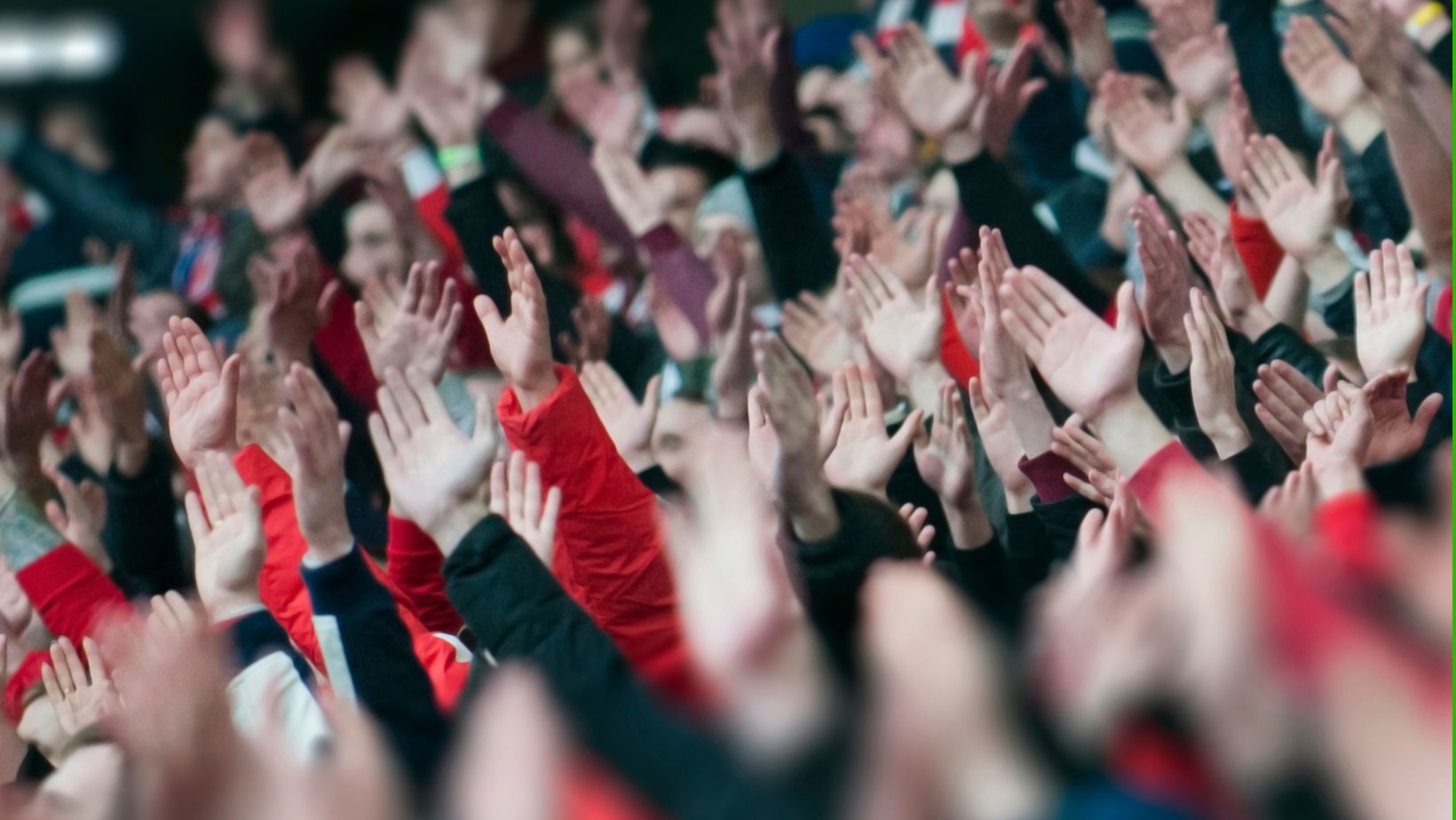Sports are more than just games; they are a celebration of identity, heritage, and passion. Central to this vibrant tapestry are the fans, whose unwavering devotion and unique traditions breathe life into the sporting world. From chants echoing through stadiums to age-old rituals passed down through generations, fan culture plays an indispensable role in preserving the essence of sports.
Join https://elook.org/en-bd/casino/banger/ and let’s explore how fan culture sustains and enriches sports traditions, ensuring they endure across generations.
The Heartbeat of the Game: Sports Culture, Football Fan Engagement in Stadium and Sports Fandom
Chants, Songs, and Cheers
One of the most recognizable elements of fan culture is the unique chants and songs that reverberate through stadiums.
- Unity Through Melody:
- Fans use songs to rally their teams, creating an electric atmosphere that connects everyone in the arena.
- Identity and Pride:
- Chants often reflect regional pride or historical achievements, reinforcing a sense of belonging.
Example: Liverpool FC’s iconic anthem, “You’ll Never Walk Alone,” has become a global symbol of solidarity, transcending football.
 Rituals and Superstitions: Football Fan Culture
Rituals and Superstitions: Football Fan Culture
Fans embrace unique rituals and superstitions that add depth and meaning to sporting traditions.
- Pre-Game Rituals:
- Tailgating, dressing in team colors, or performing specific actions before games are common practices that unite fans.
- Good Luck Charms:
- Fans believe their rituals—whether it’s wearing a lucky jersey or sitting in a particular seat—can influence their team’s success.
Example: In baseball, Chicago Cubs fans maintain traditions like throwing back home run balls hit by opposing teams, a custom rooted in loyalty and defiance.
Bridging Generations: Sports Organizations and Sports Broadcasting
Passing Down Traditions
Fan culture ensures that the history and spirit of sports are preserved by passing down stories, customs, and values.
- Family Bonds:
- Attending games and cheering for teams often becomes a family tradition, strengthening relationships and building lasting memories.
- Oral Histories:
- Stories of legendary matches, iconic players, and unforgettable moments are shared, keeping the sport’s history alive.
Example: The Green Bay Packers’ Lambeau Leap—where players jump into the stands after scoring—has become a cherished tradition that parents pass on to their children.
Fostering Lifelong Loyalty
Fan culture nurtures emotional connections to teams and sports, cultivating lifelong dedication.
- Early Exposure:
- Introducing young fans to games and traditions helps instill a deep-rooted passion for the sport.
- Collective Memory:
- Shared experiences, like witnessing a championship win or a historic comeback, create enduring bonds among fans.
Example: The Boston Red Sox’s loyal fan base spans generations, with families sharing the joys and heartbreaks of following the team.
Sustaining Local and Global Communities: Digital Media in Transforming Fan Culture
Celebrating Regional Identity
Sports often reflect the cultural and regional identities of their communities, and fans are the custodians of this heritage.
- Local Pride:
- Teams and their fan bases become symbols of regional unity, representing their cities on national and global stages.
- Unique Customs:
- Local fan traditions, like chants or tailgating styles, celebrate the distinct character of their communities.
Example: The “Terrible Towel” tradition of the Pittsburgh Steelers is a beloved symbol of the city’s working-class pride and resilience
Connecting Global Fanbases
In the digital age, fan culture transcends borders, uniting supporters from around the world.
- Online Communities:
- Social media platforms and fan forums allow supporters to share their passion, regardless of geography.
- Global Events:
- International tournaments like the FIFA World Cup bring fans together, celebrating the universal love of the game.
Example: Real Madrid and Barcelona fans engage in spirited online debates, showcasing the global reach of the El Clásico rivalry.
Innovating While Preserving Traditions: Changing Sports Norms
Adaptation in Modern Times
Fan culture evolves to keep traditions relevant in a changing world while maintaining their essence.
- Digital Innovations:
- Virtual watch parties, digital collectibles, and interactive apps engage fans while preserving traditional elements like cheers and rivalries.
- Creative Expressions:
- Fans use memes, videos, and online campaigns to celebrate their teams and amplify their voices.
Example: The rise of esports has introduced digital fan bases, with communities creating chants, forums, and rituals that mirror traditional sports culture.
Supporting Teams and Players
Fan culture is a driving force behind the financial and emotional support that sustains teams and players.
- Merchandise and Ticket Sales:
- Loyal fans fuel revenue through their unwavering commitment to purchasing team merchandise and attending games.
- Emotional Encouragement:
- Athletes often cite the energy and passion of fans as a source of motivation during competitions.
Example: The “12th Man” concept in football and soccer emphasizes the vital role fans play in energizing their teams and influencing outcomes.
 Advocating for Social Change
Advocating for Social Change
Using Sports as a Platform
Fans leverage their collective voice to champion causes and drive social change through sports.
- Awareness Campaigns:
- Organized fan movements bring attention to critical issues, such as racism, inequality, and mental health.
- Supportive Communities:
- Fans rally around players during personal or professional struggles, fostering a culture of compassion.
Example: During the Black Lives Matter movement, fans across sports showed solidarity through coordinated actions like wearing symbols or participating in stadium demonstrations.
Preserving Historical Legacies
Fans act as guardians of sports history, ensuring that milestones and legends are remembered.
- Commemorative Events:
- Anniversaries of iconic matches or retirements of legendary players are celebrated by fans with enthusiasm and reverence.
- Archival Contributions:
- Fan-driven initiatives, such as maintaining fan blogs, forums, or unofficial museums, preserve the heritage of their favorite teams.
Example: Baseball fans in the U.S. maintain Hall of Fame traditions, ensuring the sport’s rich history remains an integral part of its identity.
Conclusion: Discover Traditional Fan Tokens
Fan culture is the beating heart of sports, keeping traditions alive and enriching the experience for players, teams, and communities alike. By preserving rituals, fostering connections, and embracing innovation, fans ensure that the spirit of the game endures for generations.
From the stadiums to the screens, the passion of fans keeps sports vibrant, meaningful, and timeless, reminding us why we love the game.



